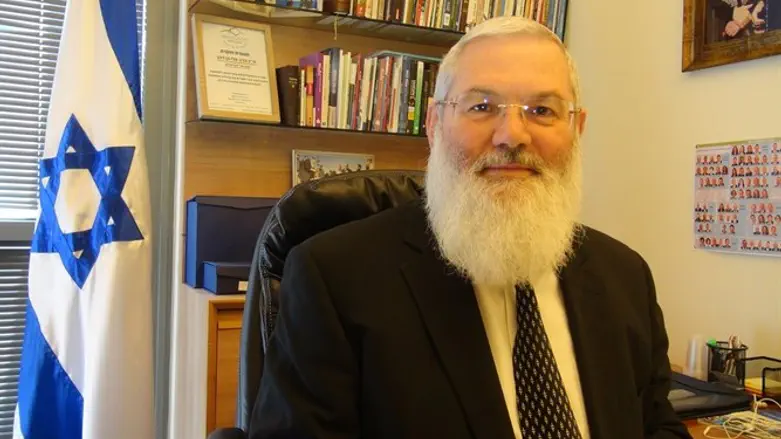
Deputy Defense Minister Rabbi Eli Ben Dahan, who served in the past as director of the rabbinic courts and deputy minister of religious affairs spoke to Arutz Sheva about the significance of 'Agunot (chained women) and Mesorevet Get (Get refusal) Day.
"The importance of the day is to raise public awareness of the issue of agunot and the refusal to give a get (the Jewish writ of divorce)," said Rabbi Ben Dahan. In Jewish law, only a man can grant a get.
However, the deputy minister has reservations about the campaign. "The focus makes it seem as if there are only agunot and that this is the main problem facing the rabbinical courts, and this is incorrect. It emphasizes an issue which is not the main problem and with which we are dealing."
Rabbi Ben Dahan explained the difference between an agunah and a mesorevet get. "A mesorevet get is someone whose husband is [here] in Israel and who has had hearings in the rabbinical courts where the ruling was that he should grant his wife a get, but he refuses to do so. An agunah, on the other hand, is someone whose husband has disappeared."
He said that the number of agunot is very small. "In the end, the number of agunot, as defined by halakha, is very small, even though we expanded the concept of Agunot to include a woman whose husband is abroad and his place of residence known. If he refuses to give a get and we can not find a way to convince him to give a get, [his wife] is also considered an aguna. The number of women [who qualify as agunot] is only a few dozen, between 40 and 50."
According to Rabbi Ben Dahan, the number of women who refuse to receive a get is almost identical to the number of men who refuse to give one. "In my time, we did a thorough study of this issue, and we found that there are slightly fewer men who are refused divorces than women who are refused divorces, and I tend to assume that the number is similar because the problem is similar."
Ben Dahan refers to the discussion that took place today in the Committee for the Advancement of Women on Agunot and Mesoravot Get. "These discussions are intended to some extent to claim that the rabbinical courts do not deal with the problem properly, that the courts are not trying to solve women's problems, but that is not the reality. The courts are making very great efforts to solve the difficult cases."
"In my time, we started sending private detectives to locate husbands who disappeared abroad. There is no legal system in the world that does this. We did it because we really wanted to solve each and every case. The State of Israel was willing to invest a great deal of money in order to locate [husbands] and ultimately have them grant a divorce to their wives" he asserted.
Ben Dahan feels that some of the organizations involved are working to harm the rabbinate and the religious courts. "Unfortunately, they love to hate the courts. Today, there are organizations that want to destroy the traditional family in Israel, who want to define a new type of family here and also want to have civil marriage in Israel."
"These organizations are undermining the rabbinic establishment in order to weaken it and to bring about a negative public opinion that will ultimately lead to its downfall."
He said that civil marriage will not solve any of these issues. "Civil marriage will be a much more serious problem for the unity of the Jewish people, I feel that the rabbinical courts are working hard to repair and improve their performance., so although there are a number of cases that do not end properly, it is only a small percentage of the whole," he concluded.
